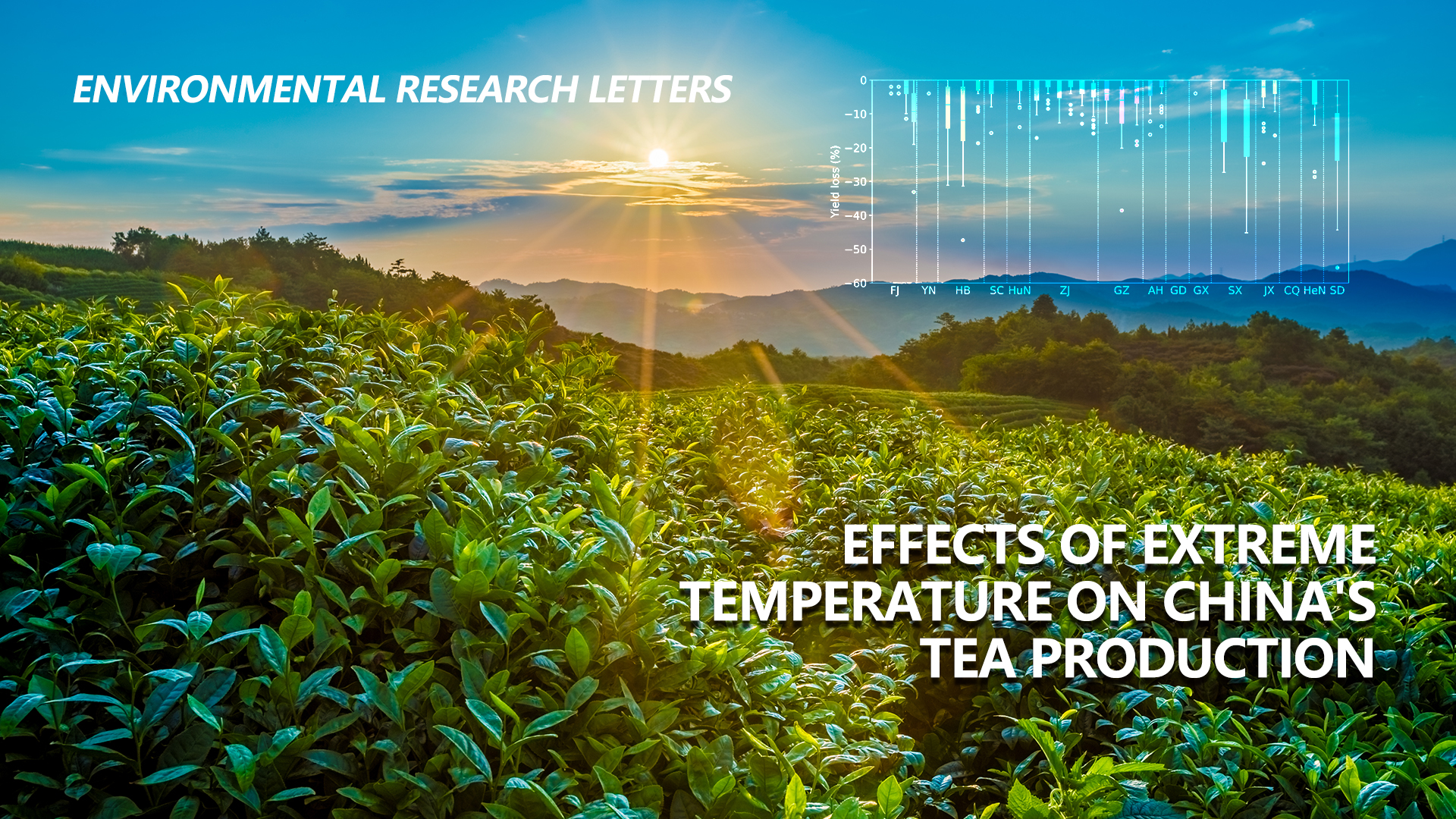In March 2021, a joint research team led by Professor Jeong Sujong from Seoul National University (SNU) and Professor Chunmiao Zheng from the Southern University of Science and Technology (SUSTech) revealed the impacts of climate change on tea production across China. The study findings were published in the renowned international journal Environmental Research Letters, entitled “Effects of extreme temperature on China’s tea production.” This study, for the first time, quantified the relationships between temperature extremes and tea production in China by integrating multisource datasets and a panel regression model with 21 global climate models, demonstrating the vulnerability of tea production to both cold and heat extremes.

Tea is the second most consumed beverage globally and one of the most important cash crops in developing countries. China as the largest tea-producing country accounts for around 41% of the world’s production in 2016. As a result, tea cultivation is of considerable socio-economic importance for rural development and poverty alleviation. However, the production of tea is susceptible to extreme weather events. Unfavorable weather conditions can be detrimental to tea production and substantially reduce tea yields and quality. Despite the vital importance of tea production in China, research efforts to understand the impacts of climate change on tea production are considerably limited, especially with regards to temperature extremes.
In this study, the joint research team collected a new long-term, fine-resolution, prefecture-scale tea production dataset and merged it with weather data, which covers ~70% of the tea-growing regions in China. The team deployed a classic regression model approach to analyze the nonlinear responses of tea yield to historical weather variability. Subsequently, a total of 21 global climate models were used to estimate future temperature extremes and their consequent impacts on tea yields under the 1.5 °C and 2.0 °C warming scenarios.

Figure 1. The impact of cold waves in different provinces of China on tea production
The study uncovers that in the present climate (1990-2016), dominating cold extremes influence more than 50% of China’s tea production, with a maximum of 56.3% reduced annual production. In the near future, the team predicts positive net impacts of climate change on tea yield in all study regions at both the 1.5 °C and 2.0 °C global warming levels. However, new areas of yield reduction by intensified heat extremes will emerge at the Yangtze River and southern China regions. This study provides scientific evidence to mitigate negative extreme temperature effects on China’s tea industry and guidelines to adapt tea production to climate change.

Figure 2. The impact of cold wave, high temperature, and precipitation on tea production under the scenarios of 1.5°C and 2°C temperatures in the future
The joint study was completed by Professor Chunmiao Zheng’s research group at SUSTech and Professor Jeong Sujong’s research group at SNU. Professor Chunmiao Zheng and Professor Jeong Sujong are the corresponding authors. Dr. Yulin Yan from Professor Jeong Sujong’s team is the first author. SUSTech Professor Junguo Liu and former members Dr. Chang-Eui Park and Dr. Jaewon Joo from Professor Chunmiao Zheng’s laboratory contributed to the study. This work was supported by the National Key R&D Program of China and other projects.
Paper link: https://iopscience.iop.org/article/10.1088/1748-9326/abede6/meta
Proofread ByAdrian Cremin, Yingying XIA
Photo By